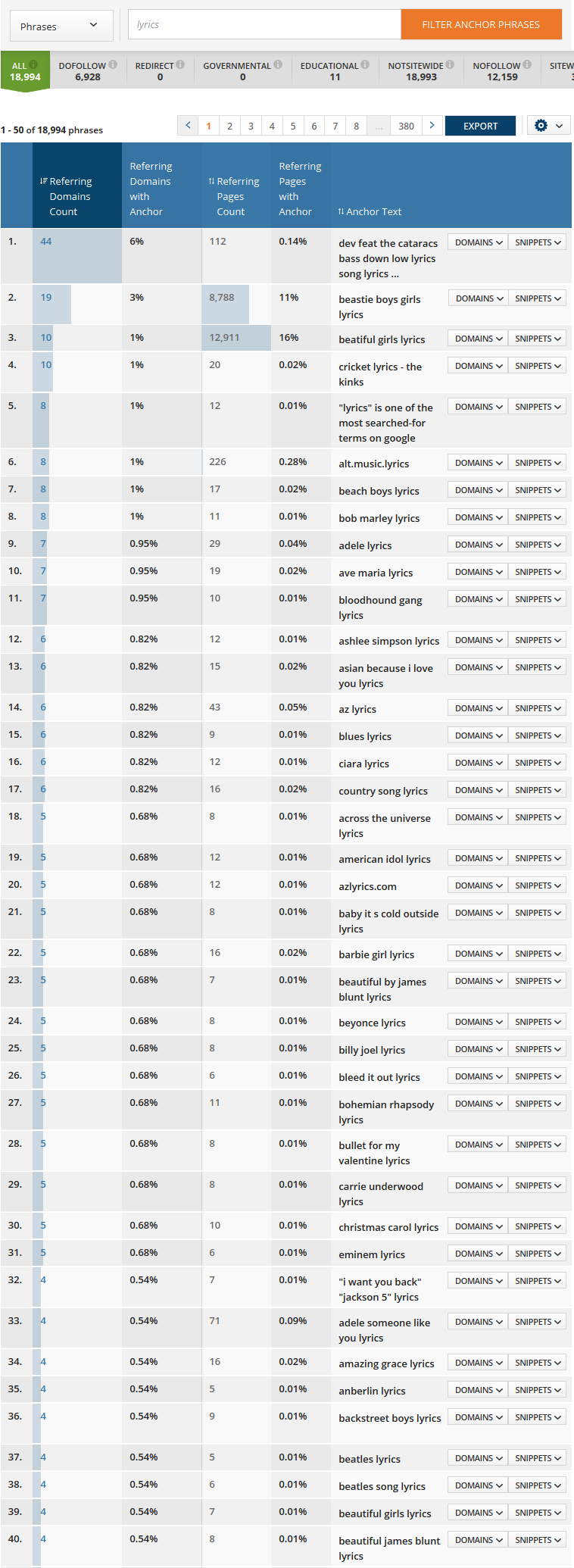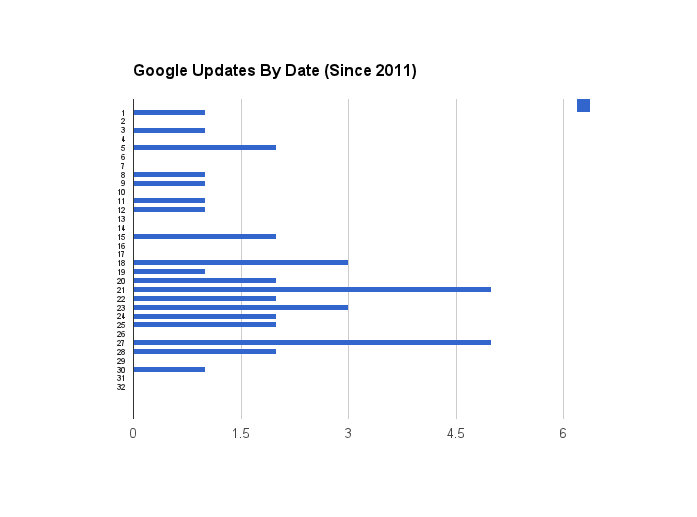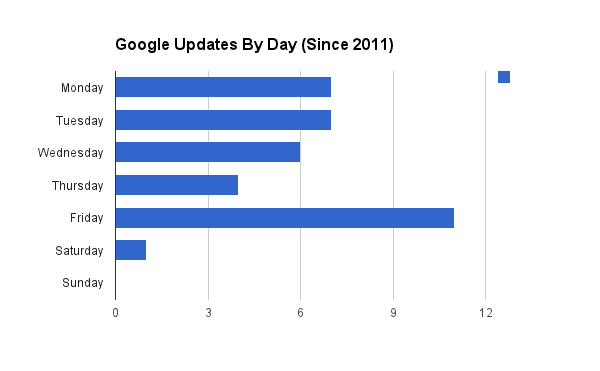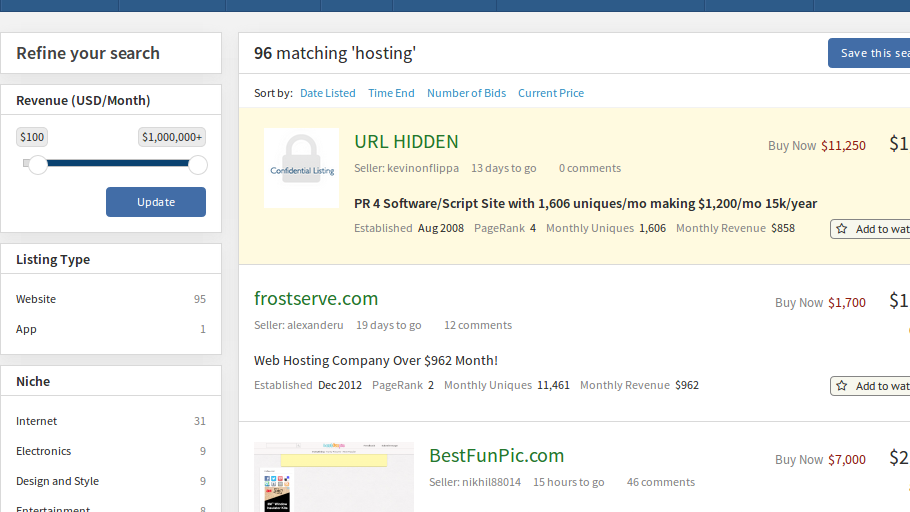My thoughts on the dangers of outing people for poor SEO and the arms race that it creates. Published on Squawk.
Post Category → Inbound
Long Live Brands: Rap Genuis is back at the top of Google

When the news that Rap Genius had escaped Google’s wrath and was back in the search results surfaced over the weekend, I wasn’t surprised. Endless bags of VC cash and the right connections can more or less buy your way to the top of Google’s results. We’ve seen sites like JC Penney or BMW get slapped by Google for unnatural link building before, only to return to the SERPs as strong as ever.
Aaron Wall had a great piece this weekend on how spamming big can net you a big return. Rap Genius has never been more talked or earned more authortative links than they have in the past 2 weeks.
Just out of curiousity, I wanted to see how ‘back’ RapGenius.com was in the SERPs. I ran a check of their search rankings in Google for the list of keywords in the email they sent that was outed several weeks ago. While the rest of the site was ranking again in Google, surely the exact keywords that they so blatantly targeted wouldn’t be at the top right?
Here’s the original email with the list of targeted terms that Rap Genius blasted out to bloggers:
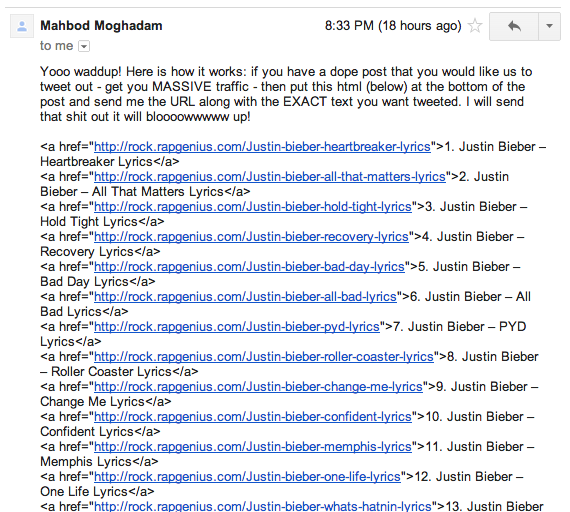
Here’s their current rankings in Google.com:
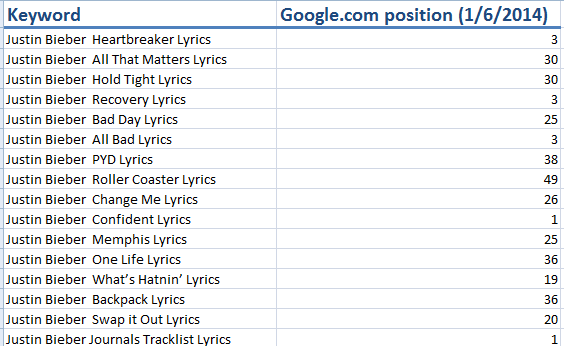
With a few sitting nicely at number 1 and a host of other keywords on page 1, it’s safe to say that big brand spam is worth every penny. I’ve worked with sites that have done far less in terms of aggressive link tactics and Google won’t even send them a sample of unnatural links. I’ve worked with sites that have had to shut down because of Penguin and Panda updates. People have lost jobs.
But if you know the right people and hire the right PR firm, spamming Google is probably the smartest decision you’ll ever make.
Google.com Growth Hack Exposed
I ran Google.com through ahrefs the other day. Google appears to be moving up rapidly in the SERPs, even answering questions about recipe ingredients. I figured they must be doing some shady link practices because nobody should be able to own that much search real estate nowadays.
Sitewide Links
Right away, I noticed that Google has over 1 billion sitewide links pointing back to their domain! Buy links much bro? Can’t believe I busted them so quickly.
Widgets/Badges
Take one look at Google’s anchor text and you’ll notice a startling growth hack: They link back to Google.com! “Add To Google” is the anchor text for over 20 million pages! Clearly this is some sort of widget building links on auto-pilot. Check this out…they even built a widgets section to get backlinks!
Using Google+ To Mine Backlinks
In order to verify your Google+ account, Google recommends linking back to their site with a followed link. They even have a nice post about it.
Forcing people to pass PageRank back to your domain? That seems like a clear violation of Google’s Webmaster Guidelines.
Manipulative Anchor Text
Google is a producer of great content…sometimes sites will manipulate the anchor text of the links coming into their site to earn favor in search engines.
For example, Google has over 18,000 backlinks containing the words “lyrics” pointing to their domain. Clearly, they are participating in link schemes here.
Take a look at this manipulative anchor text so they can rank highly for lyrics keywords.
This is a clear attempt to trick search engines and a domain that practices these types of SEO hacks doesn’t deserve to rank in the search engines.
Websites, especially such a well-known site like Google.com, should be able to fully control all inbound links to their site. It’s a shame to see them sink to this type of SEO in order to gain standing in the search engines.
A Mostly Unscientific Look At When Google’s Algorithm Updates Occur
I was settling down for a holiday week filled with family, food and friends when I started reading whispers of a major Google algorithm update on Twitter and elsewhere. Launching an algorithm update just before a major holiday would make sense for Google. For one, it’s a lot harder to detect and discern an update when traffic levels are mostly dropping or fluctuating wildly this time of year. Two, SEOs with lives outside of the office wouldn’t be around to give them grief if sites started dropping.
I wanted to see if Google has any sort of history of launching updated on a particular day or time. For the reasons outlined above, it would make sense for Google to be strategic about when launching major updates to their search algorithm. If they really wanted to punish link spam, for example, they could take aggressive action shortly before the major shopping season in November & December. Aggressive spammers who were penalized wouldn’t have a chance to recover.
Up until a few years ago, it has been hard to nail down exact dates for algorithm releases. Throughout most of their history, Google has released ‘monthly’ updates that included a number of changes and tweaks. Since 2011, however, we have pretty accurate data of Google-confirmed algorithm updates.
I moved them all into a spreadsheet and here’s what patterns emerged:
Some quick observations:
– The strongest tendency appears to be releasing updates closer to the end of the month. Out of the 38 confirmed updates I listed, 30 of them occurred on or after the 15th of each month.
– Friday is the most popular day to release an update. Not surprising, given that it can take until Tuesday or Wednesday for webmasters to figure out if anything has changed. This gives Google a few days of cushion to make any extra changes.
– Surprisingly, algorithm updates were also very common early in the week. Monday and Tuesday have been release days for 7 updates each.
– Given Google’s past release dates, I’ll predict that Friday, March 21, 2014 will be the next major update. This ticks the boxes for most popular day (Friday) and date (21st). There isn’t a noticeable correlation between algorithm updates and month…though spring tends to be a common season for major updates.
This is terribly unscientific but something fun to think about when looking at Google’s past and thinking about the timeline for future releases.
How I Get Daily Affiliate Marketing Ideas For Free
Affiliate marketing is a simple yet complicated venture. You can be up and running in any industry and you can be successful in any industry. You often hear about people making six figures pushing the usual suspects: hosting, pharmaceuticals or credit cards, but I know a bunch of people raking in cash in lesser known industries like snow removal, strollers and more. The best affiliate marketers are picky about which industries to venture into.
I love hearing how people choose which niches to target. It’s one of my favorite things about affiliate marketing.
One tactic that I use is leveraging Flippa.com to deliver free daily ideas to my inbox. Flippa lets you buy or sell websites through their service. Sites are often bundled with an online product or tool…oftentimes tied to an affiliate program.
To foster engagement, Flippa allows users to get daily or weekly emails continuing new websites for sale that you may be interested in based on saved searches.
I use this feature to get tons of new ideas for affiliate websites conveniently delivered to my email inbox.
Here’s how:
1. Create your account and perform a search for an affiliate industry you’re interested in.
I always filter the search to only include sites that have some revenue coming in. There’s nothing more worthless than an affiliate site not making money.
2. Click “Save This Search” at the top of the screen. Name it whatever you want and make sure that the checkbox below is ticked to receive email notifications.
That’s it…you are done. You’ll get daily emails from Flippa that include websites that are for sale. Each listing will have data on traffic and revenue. The best part? A lot of the numbers are verified so you can definitely see how much money people are making from each of these sites.
The goal isn’t to find sites to buy, but get ideas on what is working across different industries and how people are monetizing their sites. This is super valuable information for any affiliate marketer and getting a daily dose of inspiration in your inbox can work wonders.
SEO is dead

With 2014 approaching, the time has come to officially proclaim SEO is dead. People have said that SEO is dead for a long time, but this time we aren’t messing around.
Why is SEO dead in 2014?
SEO is dead because we have better options like inbound marketing. You can sign up today for a free trial at Moz or Hubspot and start to experience the joy of inbound marketing (for a low monthly fee of course). Why waste your time on optimizing for keywords if SEO is dead? Inbound marketing isn’t a fancy word for SEO! It’s a whole new lifestyle. Learn to dance on the grave of SEO while never having to check rankings…the only thing that matters if blog post views. Number of post is the new revenue since SEO is dead (and high quality are worth many dollars! h/t @hubspot)
The new SEO for 2014 is really all about creating high quality content…just like this blog post about the death of SEO. Since SEO is dead, we need to focus on social signals, building up Google authorships, ego bait, infographics, ebooks and more. None of these are about links or ranking highly in Google though. I just do them to look like an industry expert. Google can tell if you are one. I read it on Moz.
The Reason Why SEO Is Dead
1. Matt Cutts said SEO isn’t real. He’s an unbiased expert on search. He said PageRank is dead too and it isn’t coming back in 2013 just like how SEO is dead.
2. Google Penguin killed SEO. Just do a few searches. Google killed all the link spammers. Only top notch content by verified Google authors ranks in the SERPs.
3. This Business2Community awesome guest post on “SEO is Dead. Content Marketing = Guaranteed SEO” It brought a tear to my eye.
4. Reason four is my editor told me to write a post called “SEO is dead” and mention that specific phrase at least 155 times. We do it for branding and because SEO is dead, death of SEO, seo dead, is seo dead? seo death 2014. It’s great for users.
5. Google doesn’t really think of links anymore. Google thinks of brands. You should build a brand. my brand is about SEO is dead because we provide quality SEO is dead through content marketing about SEO is dead 2014 and free tools, ebooks, webinars, blog posts, tweets, articles, spun articles, blog comments, paid links about subjects such as SEO is dead.
6. If you get more of the Google+ you will rank higher. I read it in a forum post by ez_shares4u so it’s trustworthy.
7. Because great content is great!
Use this embed code to link to my page about how SEO is dead. Also: link building is dead. I’m just asking you to link as a favor because great content deserves a share.
Please include attribution to Trevin Shirey with this link.
Share this Post On Your Site
Please share this article with your friends on social media. #SEOIsDead #Really
Google’s Evil Algorithm For Everything
Google scares me. They have for a long time, but not nearly as much as they do as 2013 wraps up. Lots of SEO like to whine and moan about Google, mostly because they think their sites deserve to rank higher. I’m guilty of doing that myself sometimes.
But while the Google-created Internet marketing industry puts food on my table, I’m more scared of Google as a citizen and consumer than I am as a professional SEO.
Spending 9-10 hours every day analyzing search results seems like it would make you very aware of how dangerous and powerful Google has gotten but I think it actually has the opposite effect. Over Thanksgiving as I spent less time entrenched in the SERPs, I started to think more about the larger impact of Google and what that means for the future of our world.
Google’s mission is to organize the world’s information – company mission statement
Google As A Public Utility
Let’s face it…Google has become a public utility as essential to modern society as rivers, sidewalks or power lines. Imagine a day without Google. Their reach has gone far beyond search. They serve as ISPs, phone providers, website hosts, email hosts, calendar keepers and more.
But unlike most public utilities, Google’s sole purpose isn’t to provide a public utility. Their sole purpose is to advertise. A power company is a public utility but one who’s money is made by providing reliable power services. Google’s a public utility company who makes money by gathering as much information as possible and using that information to serve targeted advertisements.
That is what scares me about Google and I probably don’t worry about it nearly enough.
Algorithms…for everything
Cory Doctor wrote an awesome story about how Google could be integrated with the NSA in the future. While Google has butted heads with the government recently, I don’t think a scenario where the two are intertwined is that farfetched.
With the massive amounts of personal data they have, Google is likely already just as efficient as the government at using personal data to identify criminals, potential criminals and other shady happenings. Google’s two biggest strengths are their ability to gather personal data and use algorithms to analyze it on a large scale level. I bet Google could perform more effective background checks based on search history (Google), email history (Gmail), browsing history (Google Accounts) and location history (Android) than the TSA can right now.
While Google masquerades as an advertising agency, they are really a company that can build an algorithm for everything.
If Target can identify pregant teens before their parents find out, just imagine what Google can infer via their algorithms about each of us.
Given data that they already have, does anybody think it would be a challenge for Google to determine which of their users:
- Sells drugs
- Evades income tax
- Cheats on their spouse
- Gambles
- Contemplates suicide
These may seem like minor things but having an accurate algorithm that can determine all of our deepest and darkest secrets could be one of the most powerful tools in the history of the world — and it’s owned by an advertising company.
Do you trust an advertising company with that much power? I don’t.
The Problem With “Create Great Content”

I had an conversation with my Dad a couple of weeks ago about Internet marketing. He’s an old school business owner who doesn’t know a lot about the web, but knows that he should probably be doing something online.
I talked with him for a while about some different things he could be doing — SEO, CRO, PPC, blogging, etc. He’s in the same position as a lot of small business owners. He doesn’t have any web marketing people on staff and he doesn’t want to spend a ton of money to start seeing results. (If you work on the agency side of SEO, this is a dilemma that you come across a lot.)
“What should I be doing to get more leads from the web?” he asked.
I took a minute and thought about how to answer his question. Creating web marketing strategies is what I do for 8+ hours a day so it shouldn’t have been too hard to answer, but for whatever reason I was really racking my brain. After all, if there’s one person you don’t want to disappoint it’s your Dad.
If you subscribe to Google’s recommendations, then the answer is that your time is best spent “making users happy” or “creating great content”…what exactly that means I’m not sure, but that seems to be the common answer if you read industry blogs and publications.
While the Google PR machine and the Moz zombies continue the chants of “Make users happy” and “Create great content” those of us in the real world know that the best answer to my Dad’s conundrum is to invest in actual SEO — the type of SEO that is driven by data, produces tangible results and generates new leads. If my Dad’s insurance agency has $1,000 and 3 hours a week to invest is there anybody out there who actual believes their best bet is just make users happy?
I told him to invest in acquiring links from trusted and authoritative sites in his industry. I told him to rewrite and build out the content on his website. I told him to write unique and descriptive page titles and descriptions. I told him to start writing weekly blog posts optimized for long tail keywords. And I told him to have somebody get really good at email marketing.
In short, I told him to do basically the same things that SEOs have been doing for years because that is what works and what makes sense for real SEOs working with real companies. Business owners don’t live in a fairy tale world where great content prints money. Take a look around at Google’s results, especially in highly competitive verticals. Look at what pages are actually ranking for money keywords.
SEO — in all shades — still works.
Is Google removing underlines from search results links?
I was watching TV a few minutes ago while perusing the web and noticed something different in Google. It took me a while to figure out what it was. I actually had to open up some saved screenshots of Google results to figure it out. The results page looked cleaner but I couldn’t pinpoint it.
Turns out the culprit was that Google had removed the underline from the links in the search results page. The underline was gone for all listings — paid and organic.
Here’s a screenshot of the results I saw this evening: Continue reading
Hacker News For Everything
To the popular press, “hacker” means someone who breaks into computers. Among programmers it means a good programmer. But the two meanings are connected. To programmers, “hacker” connotes mastery in the most literal sense: someone who can make a computer do what he wants—whether the computer wants to or not. – Paul Graham
Hacker News is an awesome site filled with wonderful information if you are interested in the web, business or learning new things. It’s the rare community online that has sprung up and remained true to its roots. HN is one of the few sites that I read daily.
One of the things that the web has gotten really ‘good’ at over the years is finding something that works and beating it to death. Hacker News is the latest example.
Instead of trying to build a new community in a unique way, too many smart people are trying to ‘disrupt’ different industries by taking the one size fits all approach and creating a “Hacker News for X”.
Here are a few examples of people creating a Hacker News for everything instead of building something unique:
Inbound.org – Hacker News For Marketers
TheNews.im – Hacker News For Designers
GrowthHackers.com – Hacker News For Growth Hackers
Firespotting – Hacker News For Ideas
Startup Revolution Hub – Hacker News For Startup Communities
LearnBoost – Hacker News For Higher Education
nbt.fm – Hacker News For Music
Believe it or not, online communities can exist and thrive outside of the HN formula. Community-based sites that have had mass success didn’t take some existing site and copy everything that they were doing. They blazed their own trail. The world doesn’t need an HN for everything.

